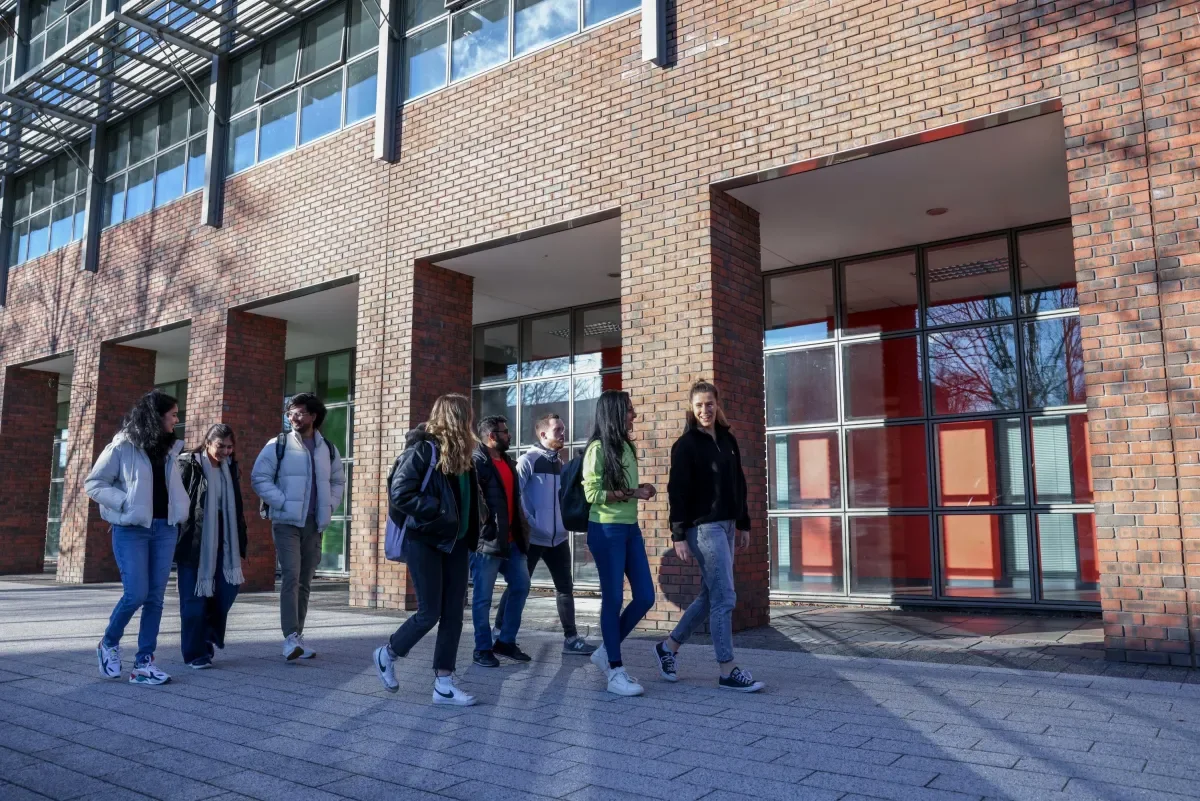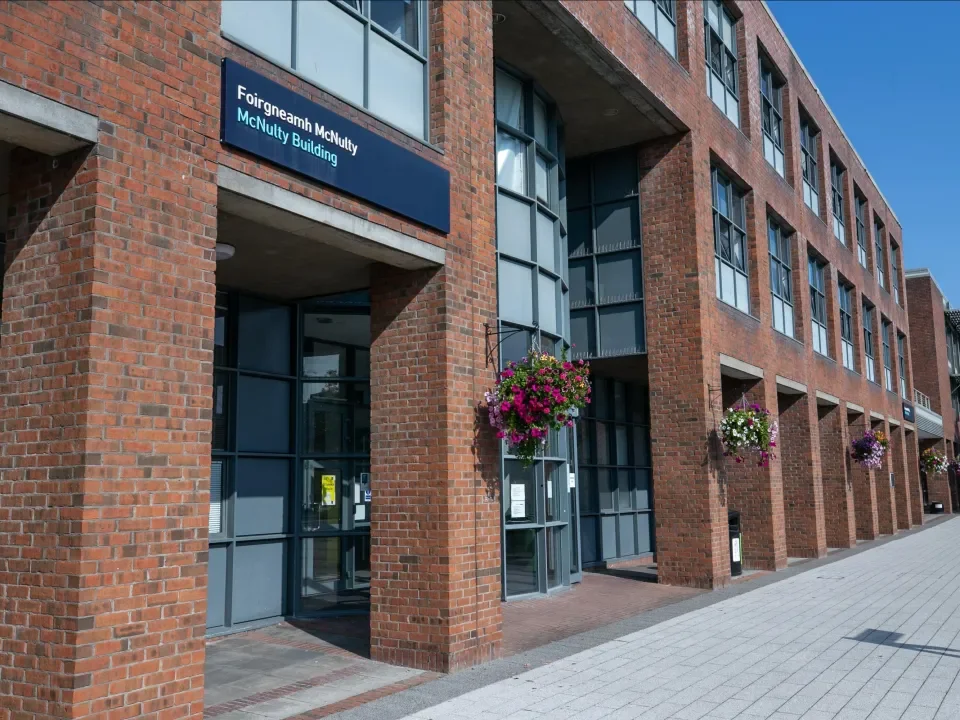

Getting Started
Getting Started at the School of Computing
Your first challenge will be finding your way to the university to attend orientation. Be aware that DCU has 3 academic campuses, and that School of Computing activities (including orientation) are largely on the Glasnevin Campus. Directions to DCU and Campus maps can be found here.
To assist you with your transition to University, Student Support and Development at DCU have designed a series of 8 short online courses called ‘Discover DCU’. To access these courses, simply log onto loop.dcu.ie with the username and password that has been supplied to you in your offer letter. If you have any difficulty accessing Discover DCU, please email student.support@dcu.ie or call the 1st Year Student Advice Hotline at (01) 700 7165.
Discover DCU is an interactive resource and you can get started on it right away, before you come to Orientation. It is full of important information, helpful tips and advice during this pre-orientation phase, as well as academic and study skills throughout your 1st year journey.
So that you know what is going on, and we can help you if your experience is less than smooth, it is important that you are proactive in taking in communications from the University, i.e. read correspondence which is sent to you, go to meetings when invited. Formal and group contact is usually electronic (via email, your portal page, and Loop) but personal interactions are also key (with lecturers, Chairs, technical and professional support staff).
The DCU Academic Calendar lists all major events during a given academic year such as dates for exams, reading week and breaks. You can view the academic calendar for 2024/25 on the DCU website here.
Classes start the week of Monday, 16th September for first year students.
The student timetable is available here.
Following this link choose ‘Class Timetable’, then select the abbreviation of your programme (for example for COMBUS for Computing for Business, COMSCI for Computer Science) and year 1, weeks 1-12, and ‘Day’, then ‘Click here to Retrieve the Report’. This link is also available from your Portal Page (see Keeping in Touch and Keeping Informed), details of which you will receive at Registration. Please note that timetables may change during the first few weeks of the Semester and it is advisable to check your portal regularly. After the first weeks, changes will usually be notified by e-mail.
Practicals and tutorials will run on our Glasnevin campus from September until early December. It is important that you attend practicals and tutorials to confirm that you are keeping up to speed with learning. Students who are not appropriately engaged with their module content on an ongoing basis can become overwhelmed later in semester, especially in computing where skills must be acquired and refined on a continuous basis.

McNulty Building, Glasnevin Campus
The McNulty, or School of Computing Building, is opposite the campus Londis shop. The DCU Campus Map is available online and the McNulty building is marked with the letter 'L'. You can view the campus map here.
The DCU Maths Learning Centre is a free service that provides informal, additional support with maths to DCU students in a relaxed environment. It cannot replace lectures and tutorials but it can help you study more effectively and keep up-to-date with your exercises. The Centre works to ensure they have tutors with knowledge of our courses on hand at specific times where there are gaps in your timetable. We recommend students use this service even if you do not find maths difficult. It is a worthwhile service for all students regardless of maths level. More details can be found here.
You can find all printing locations on campus here.
Each module and lecturer has different requirements. The lecturers in charge of coordinating the modules will present more specific requirements to you during their lectures, practicals and tutorials.
You are not required to purchase a laptop for this programme but are free to do so, but please note that the School cannot provide technical support on personal laptops.
The School maintains its own computer labs with approx. 400 desktops which have all the software needed for programming and module assignments. The machines run Windows Enterprise and Linux operating systems and mainly use open source or free applications, so if you use a personal laptop you should be able to install most applications without additional costs. A Windows laptop will need to run Windows Home or Professional editions to install lab applications. Windows S-mode laptops can only install Universal Windows Platform (UWP) software from the Microsoft Store.
Students are entitled to an educational discount on personal purchases of products through the HEAnet web store. For more information on how to purchase, click here. Click on 'See all Offers', choose DCU and verify whether you are staff or student by authenticating with your DCU username and password in the pop up window.
The School of Computing maintains several computer labs for common use for all students. However, the purpose of each computer labs is different. Some are available to all students, while others may be allocated for specific groups (e.g. 3rd and 4th year students). If you are purchasing a laptop, the school would recommend a laptop with a minimum recommendation of at least the following:
— Type : Windows 10, MacBook, MS Surface
— Processor: i5 / i7 / M1 / AMD Ryzen 5
— RAM: 8GB / 16GB
— Hard Drive: 256GB / 512GB SSD
Please note: Microsoft Office 365 is now available to all current Dublin City University students free of charge.
Each year you will study several subjects (called modules). Each module has its own weighting, called credits, indicative of the total amount of time it is estimated you will need to spend on it to reach the learning outcomes. A 5-credit module typically requires 125 hours of work, some of which is timetabled, most of which is up to you (independent learning time). In the First Year of your programme, you are required to complete 60 credits worth of modules, corresponding to about 45-50 hrs/week. School of Computing programmes are full time. In Year 1, all modules are core modules, meaning they are compulsory (you must register for all of them). Please check your portal page to ensure that you have registered correctly. It is the responsibility of the student to correctly register for all modules and any inaccuracies should be discussed with the Registry Immediately. Note that Exam / Continuous Assessment breakdowns are subject to change but they will be advised by individual lectures upon module commencement.
Year One Core Modules
| Code | Title | Credits | Semester | CA % | Exam % |
| CSC1060 | Computer Systems | 5 | Semester 1 | 100 | 0 |
| CSC1061 | Web Design | 5 | Semester 1 | 100 | 0 |
| CSC1003 | Computer Programming 1 | 10 | Semester 1 | 60 | 40 |
| CSC1012 | Problem Solving, Creativity and Critical Thinking | 5 | Semester 1 | 100 | 0 |
| MTH1025 | IT Mathematics 1 | 5 | Semester 1 | 20 | 80 |
| CSC1002 | Digital Innovation Management and Enterprise | 5 | Semester 2 | 100 | 0 |
| CSC1004 | Computer Programming 2 | 10 | Semester 2 | 50 | 50 |
| CSC1010 | Networks and Internet | 5 | Semester 2 | 50 | 50 |
| CSC1011 | Intro to Operating Systems | 5 | Semester 2 | 100 | 0 |
| MTH1026 | IT Mathematics 2 | 5 | Semester 2 | 20 | 80 |
| Code | Title | Credits | Semester | CA % | Exam % |
| CSC1156 | Introduction to Computer Hardware | 5 | Semester 1 | 100 | 0 |
| CSC1061 | Web Design | 5 | Semester 1 | 100 | 0 |
| CSC1006 | Collaboration and Innovation | 10 | Semester 1 | 100 | 0 |
| CSC1012 | Problem Solving, Creativity and Critical Thinking | 5 | Semester 1 | 100 | 0 |
| CSC1009 | Digital World | 5 | Semester 1 | 0 | 100 |
| MTH1016 | Mathematics for Enterprise Computing | 5 | Semester 1 | 20 | 80 |
| CSC1014 | Programming Fundamentals | 10 | Semester 2 | 50 | 50 |
| CSC1010 | Networks and Internet | 5 | Semester 2 | 50 | 50 |
| CSC1062 | Business Applications | 5 | Semester 2 | 100 | 0 |
| CSC1002 | Digital Innovation Management and Enterprise | 5 | Semester 2 | 100 | 0 |
| CSC1063 | Managing Enterprise Computing Systems | 5 | Semester 2 | 50 | 50 |
| CSC1007 | Data Analysis and Visualisation | 5 | Semester 2 | 100 | 0 |
| Code | Title | Credits | Semester | CA % | Exam % |
| CSC1060 | Computer Systems | 5 | Semester 1 | 100 | 0 |
| CSC1003 | Computer Programming 1 | 10 | Semester 1 | 60 | 40 |
| CSC1013 | Introduction to R | 5 | Semester 2 | 50 | 50 |
| CSC1005 | Data Science and Databases | 5 | Semester 1 | 20 | 80 |
| MTH1010 | Linear Mathematics 1 | 5 | Semester 1 | 20 | 80 |
| MTH1018 | Probability 1 | 5 | Semester 1 | 25 | 75 |
| CSC1014 | Programming Fundamentals | 10 | Semester 2 | 50 | 50 |
| MTH1011 | Linear Mathematics 2 | 5 | Semester 2 | 20 | 80 |
| MTH1030 | Calculus and its Applications | 5 | Year long | 100 | 0 |
